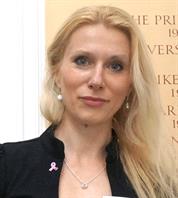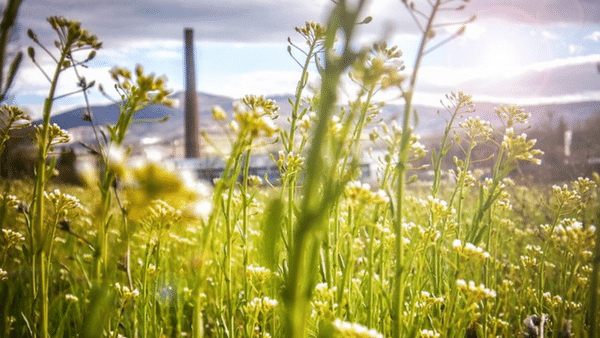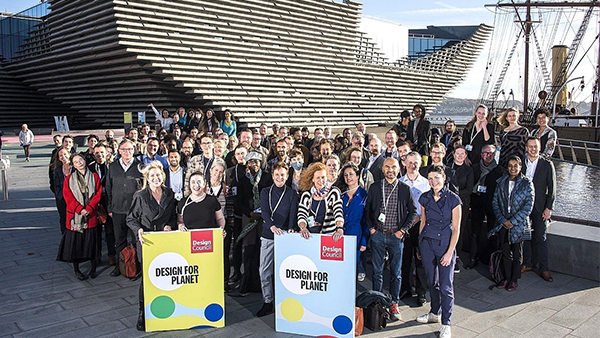Alex Krawiec, the RSA's Connector in Poland reflects on the significance of COP24 being held in her country and warns that, although it seems easier to, we're failing ourselves if we continue to avoid planning for the long term. Instead, we must take immediate action.
Every year, the United Nations holds a conference within the framework of the UN Convention on Climate Change (UNFCCC). This year, the conference (COP24) was held in Poland, quite ironically in the industrial town of Katowice - well known for its coal mines. "Poland is today the largest coal producer in the EU, and around 60% of the country’s overall energy comes from coal. No wonder sentiment towards fossil fuel remains strong", explained Polish climatologists prof. Zbigniew Kundzewicz, participant of COP 24, and James Painter, Research Associate at the Reuters Institute, University of Oxford, in their joint article for theConversation. This figure is significant, as Poland is a country of 38 million, with an area close to that of Germany.
The Upper Silesia Basin has long been famous for its quarries, producing not only coal, but also copper and other minerals. Since the 18th century, the mines provided jobs for thousands of workers, and regional culture was built around them. Miners’ festivals and uniforms are famous around the country, and Silesians are known for their cultivation of local traditions. The peak of coal production came in the 70s, with the mines being associated with well paid jobs and the potential for higher living standards for the working class. Since then, the world has changed, and new technologies enable us to resort to other sources of energy than fossil fuel, and so at the beginning of the 21st century some of the unprofitable Polish mines were closed. However, despite the technological progress and better access to science and education, the myth about the Polish mines as centers of community and job providers re-emerged under current governmental leadership. In recent years, lobbying for the preservation of the mines has increased, despite the fact that the maintenance of these massive companies may exceed the actual economic gains.
The polarisation within societies that we have been observing in the last few years has not only been reflected in politics and economics but has also divided the scientific community in matters such as mandatory vaccination or climate change - something, that seemed unimaginable not so long ago. The future consequences of conflicting opinions on such important matters as climate change can be costly. If the proponents of global warming are right, we are consistently destroying our ecosystem. Even if the climate-change deniers were right, it could still be wise to apply Pascal's Wager rule, and to live our lives in environmentally-friendly ways, promoting sustainable and renewable sources of energy. What could be a more worthy of investment than the quality of air, or the quality and availability of water and food - resources crucial to our physical, mental and economic well being?
We can argue that in the era of technological globalisation, local problems of geographically distant countries affect us all. However, none are more impactful than human-related environmental damage. If left unsolved, problems related to air and water pollution, temperature rise, endangerment of species, or an excessive production of plastic, will only escalate. Our inclination towards pecuniary-gains oriented, irrational management of natural resources, may in the longer run trigger a domino effect of irreversible, catastrophic consequence.
When I interviewed one of the keynote speakers at COP24, Sir David Attenborough, about a decade ago, critical as he had been of human-related damage to the environment, he seemed noticeably less pessimistic about our prospects. During the COP24 speech, Attenborough expressed some widely quoted cautions, which indeed should not be taken lightly. He warned that, “if we don't take action, the collapse of our civilisations and the extinction of much of the natural world is on the horizon". In other words - not much to look forward to, unless we take immediate action.
Prior to his presence in Katowice, Sir David launched a UN initiative called “The People's Seat” - a highly promising project which allows the general public to take part in summits such as COP24, and to counteract the voices of some of the world leaders ignoring the signs of climate change and jeopardizing treaties such as the Paris Agreement.
Today, unlike during the first Industrial Revolution, we do have more resources than coal and oil that we can rely on as fuel. We have more choice, and with it, we can sustain our economic standards while protecting the natural environment. However, the COP24 in Poland has proven that as a species we are failing ourselves. Our long term planning seems limited, cooperation skills - poor, and working together still seems somewhat less attractive than destructive competition. Yet, in that vortex of chaos, those like Steven Pinker claim that the world is getting better. In some way it surely is, but with an exception regarding environmental issues.
Our attachment to the past and to tradition, while often valuable, can lead us to fail to make the best possible use of knowledge and technologies available to us in the present. We disregard the warnings of experts in favour of maintaining the status quo. The continued use of coal as a primary energy source is a clear example of this - the Polish public’s attachment to mining, like that of many others, is short sighted and will doubtless prove detrimental to our wellbeing and that of our environment. If there is anything to take away from COP24, it is the cautionary voice of academics and conservationists like Sir David Attenborough warning us against ourselves and prompting us to urgently take the right course of action.
Related articles
-
Regenerative organisations: the time is now, the place is here
Joanna Choukeir
Regenerative organisations are vital to our regenerative future. The time is now for the RSA to emerge as such an institution.
-
A design revolution for the climate emergency
Joanna Choukeir
Joanna Choukeir on Design for Planet, the global gathering of designers during COP26, and the changes design must make.
-
RSA divests from fossil fuels
Josie Warden
Tackling climate breakdown demands that we align our financial flows to create the energy transition we need. We're delighted to be part of the movement.




Join the discussion
Comments
Please login to post a comment or reply
Don't have an account? Click here to register.
I think the article is over negative. The Polish people are not stupid, but their awareness of the implications of fossil fuels is limited. As the article says deniers are given air time, the communist mining ethic remains strong, and the media is controlled. Duda as president - with elections coming up - spoke at the Conference opening in support of new mines and was no doubt applauded by the USA and even Russia; Kurtyka, the Conference president did not; he spoke of solutions. The Poles know that coal is dirty and it has a short future, and the country's NGOs are doing all they can to propel renewables. I attended several meetings in Katowice during the COP on developing a just transition - over time - to a more energy efficient Polish economy. An increasing number of mining trade unionists are convinced of the need for turbines and panels. And the Katowice city council includes elected green members doing all they can to support change.
Thanks Alex, great to get a Polish perspective on what was clearly a pretty 'challenging' choice of venue for COP24.
I'm interested in the words people are using around climate change and why it is that 'deniers' are still getting air time and column space, despite the overwhelming scientific evidence on the speed and nature of the climate-driven changes that are going on around us. I noticed that you yourself wrote "If the proponents of global warming are right, we are consistently destroying our ecosystem". It's really easy to do, but I'm sure it doesn't mean you have any doubts personally. However, the use of the word 'if' at the start of the sentence is an example of what the deniers pick up on, allowing them to persist with a debate about the science. This is hindering all of us moving on to spend our time more positively generating the much needed vision for a great fossil free future that you, and Jules in his comment, are calling for....and there are a lot of positive things to say!
As Jules says, we need to apply a wide range of multi-disciplinary knowledge of how we can build a better future (and the RSA is in a great place to play a central role in that), as well as the science. First we need to stop debating the climate science. As one leading US climate scientist recently said (apologies if not entirely accurate recollection of the words) "Whether you believe in gravity or not, you're still going to head downwards if you walk off a cliff..."
Thanks for the insight into Polish attitudes to COP24. I was amazed to discover that the event was sponsored by the Polish Coal Industry. Strange times.
I think the "environmental movement" has failed miserably to engage with stakeholders from industries and jobs which will need to be "sunsetted" or completely transformed to avoid climate catastrophe. The same disregard of people and communities left behind by social and economic change is a factor in Donald Trump's election, the brexit referendum, the gillet jaune uprising, etc.
If people and communities don't see a way out of their current situation, they will obviously resist change.
The other main failure of the environmental movement is the lack of a compelling vision of a better future without fossil fuels. We have talked far too much about doom and gloom and not enough about "green jobs", clean air and water, better food, less conflict, more leisure time (because we won't need to work so hard if we consume less).
There is a large body of knowledge (art and science) around personal and institutional change. Lets start applying this knowledge as well as the climate science.
Strange times indeed. Though on the other hand, looking back in time, isn't that what we always say, no matter the times we live in?
I agree with essentially everything you pointed out, in particular that 'doom and gloom' is not a solution. True. People like Attenborough, or you and I, know this well. Unfortunately, there are too many climate change deniers trying to quell conservationists, and sadly, some of the world's top leaders are joining forces with them. I think that as long as scientific evidence is being ignored or manipulated, we won't be able to escape the "doom and gloom". Warnings will need to be repeated until they are taken very seriously.